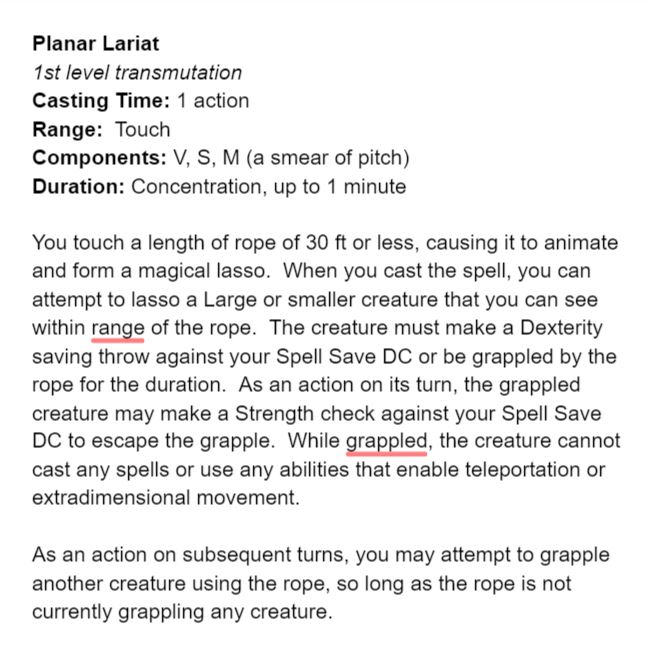Want to skip the article and go directly to the class update? Here's a one-page PDF for easy viewing.
Xanathar’s Guide to Everything introduces the Horizon Walker Ranger, the first planar-themed character subclass for 5th Editions Dungeons and Dragons, saying:
 [They] guard the world against threats that originate from other planes or that seek to ravage the mortal realm with otherworldly magic. They seek out planar portals and keep watch over them, venturing to the Inner Planes and the Outer Planes as needed to pursue their foes. These rangers are also friends to any forces in the multiverse...that work to preserve life and the order of the planes. (p.42)
[They] guard the world against threats that originate from other planes or that seek to ravage the mortal realm with otherworldly magic. They seek out planar portals and keep watch over them, venturing to the Inner Planes and the Outer Planes as needed to pursue their foes. These rangers are also friends to any forces in the multiverse...that work to preserve life and the order of the planes. (p.42)
The class is designed to add planar flavor while remaining playable in a campaign set on the Prime Material Plane. But, ironically, the class is less effective outside Prime worlds, and none of the abilities unique to the ranger, such as favored enemy or terrain, are modified to take advantage of the Horizon Walker’s specific knowledge of the planes. In this article, I update the class to become the archetypal planewalker, the type of cutter who knows the Abyss from the Hells, or at least enough dark of it to avoid being put in the deadbook (review Planar slang here).
Unpacking the Horizon Walker’s Standard Abilities
Infused with the magic of the Planes, Horizon Walkers gain access to better spells than other rangers, including Protection from Evil, Misty Step, Haste, Banishment, and Teleportation Circle. They also gain the following abilities:
-
- At level 3, they can detect the closest portal within one mile (once per short rest).
- At level 3, they also gain their core combat ability, oddly called “Planar Warrior,” which allows them to deal extra force damage.
- At level 7, they can cast the Etherealness Spell without expending a spell slot (once per short rest), but it only lasts until the end of their turn.
- At level 11, they can teleport around the battlefield before each attack, and at level 15 they can use their reaction to resist damage from an attack. Both abilities derive from their “ability to pass between the planes.”
Their spell list decently mixes power and flavor. It adds extra-dimensional movement, protection against outsiders, and Haste, which is light on planar flavor but a big power upgrade. On the ability side, while it’s not clear why planar energy can be channeled to deal force damage, the ability is powerful mechanically, and none of the other damage types seems particularly appropriate either. Detect Portal is a critical ability, and it is well-balanced and executed. Lead designer Jeremy Crawford shed insight on the design decisions behind it in an interview with D&D beyond:
“[Originally, it] could detect every single portal within a particular distance and our playtesters rightly pointed out that having that ability could basically wreck certain adventures...Imagine if we had left it in the game, going into Sigil, the City of Doors, in Planescape, and suddenly knowing where every portal is to go into another world. I imagine almost, you know, steam coming out of the ranger's ears because there's too much information at once...”
Their higher level abilities also give the class a unique flavor, allowing them to teleport around the battlefield. These abilities are powered by the Horizon Walker’s ability to “pass between the planes in a blink of an eye,” and “slip through planar boundaries.” Although the physics or magic of how this works in the world is not explicitly defined, it’s easy to imagine an expert planewalker exploiting loopholes in the makeup of the planes, either by locating them or by creating them through the power of belief.
Now that we’ve looked at the standard class features, let’s see how we can upgrade its planar-ity to make the class really shine when traveling to the Outer Planes or joining a Planescape campaign.
The Modified Horizon Walker - A True Planewalker Ranger
[Unless specifically stated, all upgrades listed here add to existing class features, not replace them.]
Starting Language: Starting at 3rd level, you learn Planar cant, a dialect of common filled with slang from Sigil, and your accent is good enough that you are not mistaken for a “clueless prime.”
Favored Enemy Option: Favored Factions: When choosing a new Favored Enemy at levels 6 and 14, you have the option instead to select two Planar Factions. All members of favored factions count as favored enemies. If you spend one minute observing an individual, you recognize if they belong to one of your favored factions. You may learn one language commonly spoken by members of your favored factions. If you choose the Xaositects, you may instead choose to learn Xaos, the ability to fluently and continuously speak in chaotic strings of garbled words.
Bonus Favored Terrain Option: When choosing new Favored Terrain types at levels 6 and 10, you have the option instead to select one Plane of Existence other than the Material Plane. You gain all benefits of this class feature as long as you are on that plane.
As an action, the Horizon Walker may expend a Spell Slot to protect all allies within 30 feet at the time of casting from general negative environmental effects of one favored plane of existence. Such effects include temperature, poisonous gas, lack of air, despair and other generalized effects specific to that plane. This ability does not provide protection from the effects of traps, magic, physical sources of damage, or from specific, localized effects such as an earthquake, tornado, or lava pool. Expending higher level spells slots increases the length of protection provided: 1st level = 1 hour; 2nd level = 4 hours; 3rd level = 8 hours; 4th level = 24 hours.
Supplemental Ability: Planar Jaunt: You are adept at exploiting loopholes in the makeup of the Planes by focusing your power of belief, granting you the ability to temporarily free yourself from the physical influence of your current plane of existence. When you are outside the Prime Material Plane, you may expend your “Ethereal Step Ability” to use Planar Jaunt instead. Planar Jaunt is functionally identical to Etherealness, but works on the Outer Planes.
New Spell: Planar Lariat: [This spell replaces Protection from Good and Evil and is available only to the Horizon Walker.]
The New Horizon Walker
When the Upgraded Horizon Walker travels to the Outer Planes, she is immediately recognized as a planewalker by her accent, not branded a “clueless prime” by those who view anywhere outside of Sigil as a small town. Her Ethereal Step ability will continue to function, just renamed and reflavored as Planar Jaunt (under the standard rules, the ability would not function when on the Outer Planes because they are not connected to the Ethereal Plane, a condition for casting Etherealness).
She will have the option to focus her ranger tracking abilities on environments and residents of the Outer Planes, but would need to forgo other options rather than receiving these abilities for free. And she will have a situational ability to prevent foes from teleporting away--a common ability in the Outer Planes--at the expense of a protection spell better suited to a cleric.
These changes do not significantly alter the combat abilities of the class, which are well-balanced already. Nor do they address one of the main problems of the Ranger class overall: the underwhelming benefits of Favored Enemy and Favored Terrain. [In my game, I address this by frequently granting the ranger advantage when dealing with favored enemies or terrain, or by allowing him to forgo dice rolls entirely.] What these changes do achieve is to give Horizon Walker PCs a few more moments in the spotlight when the party travels to the Outer Planes.
If you like this article, please share it with your friends or let me know on twitter @ThePlanarDM.